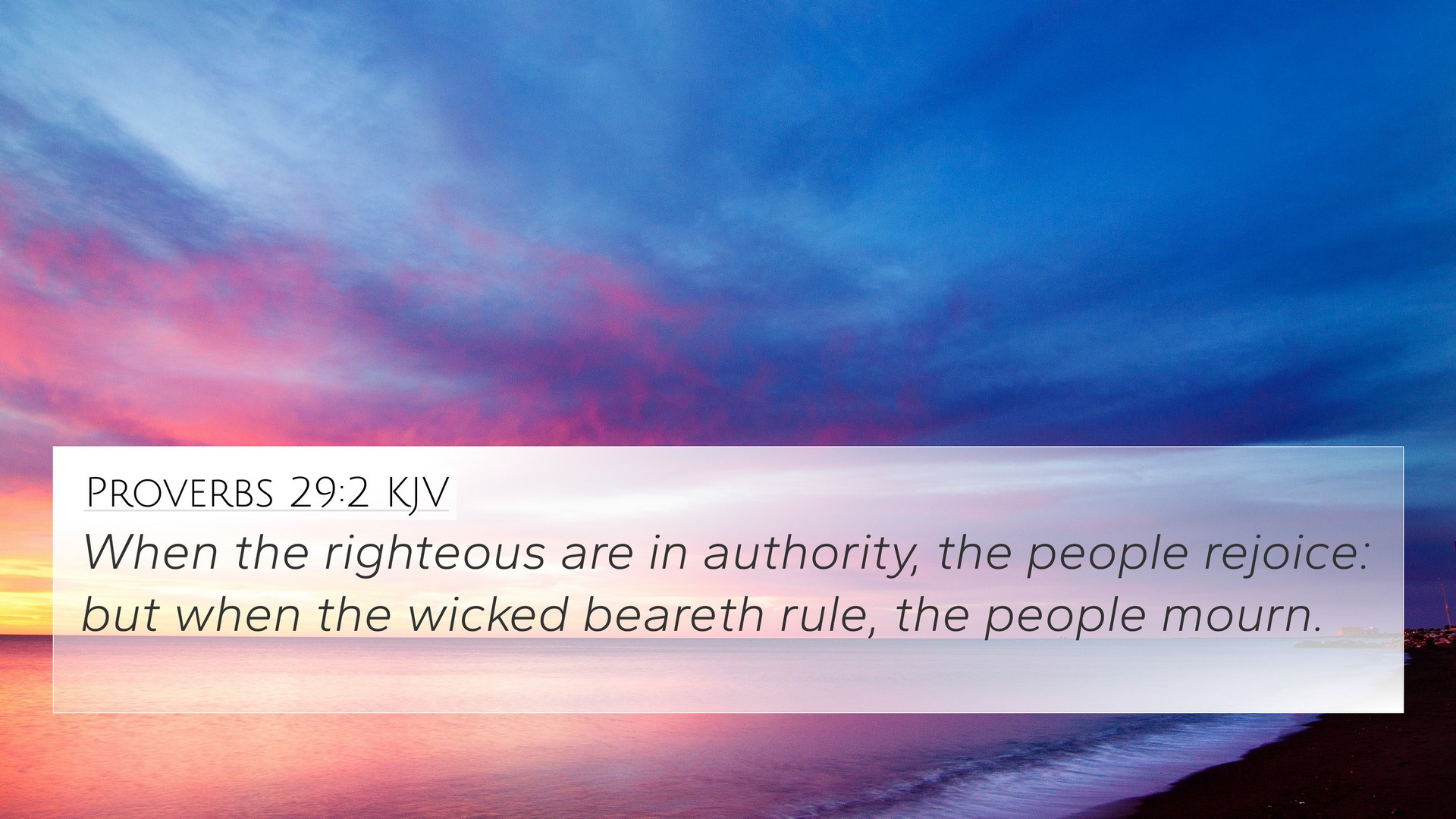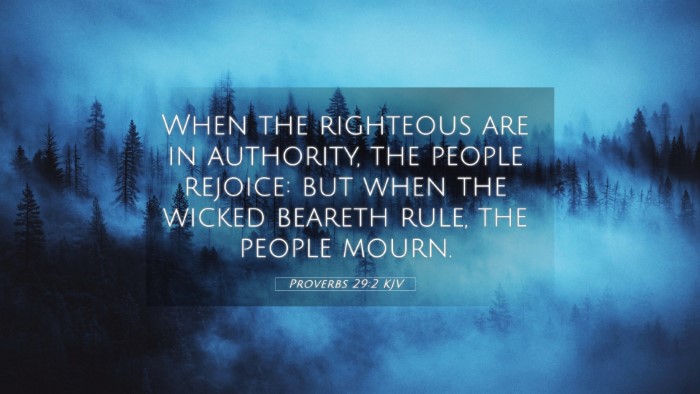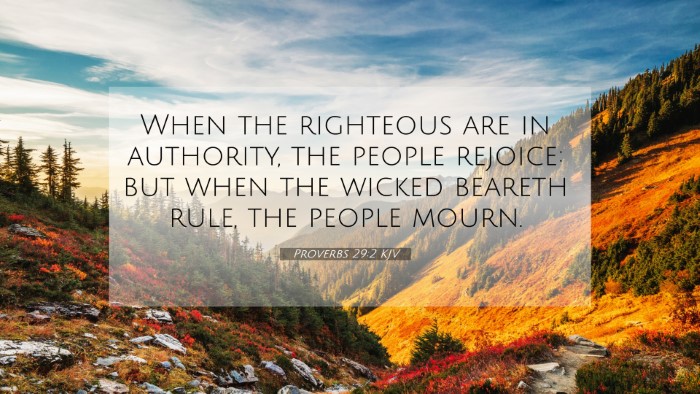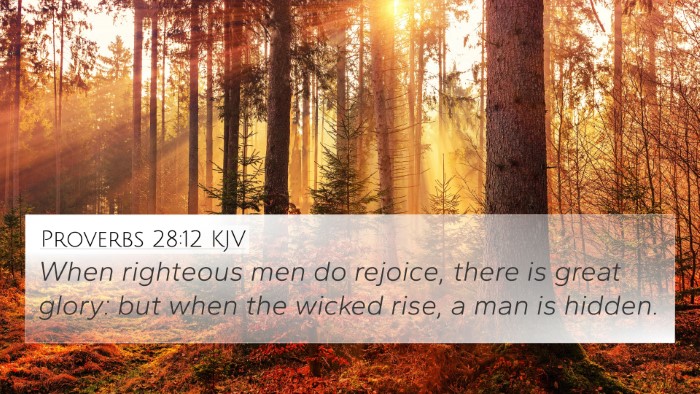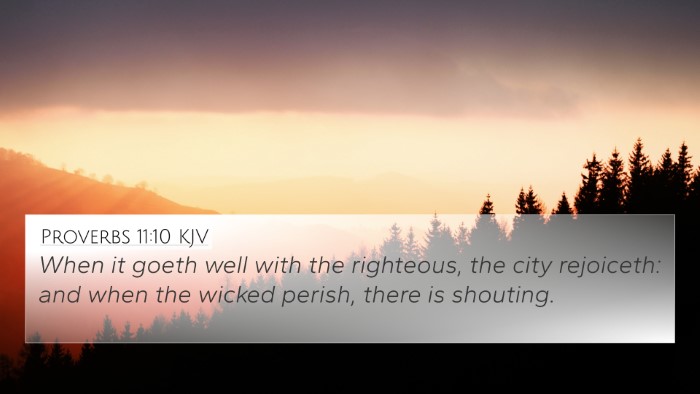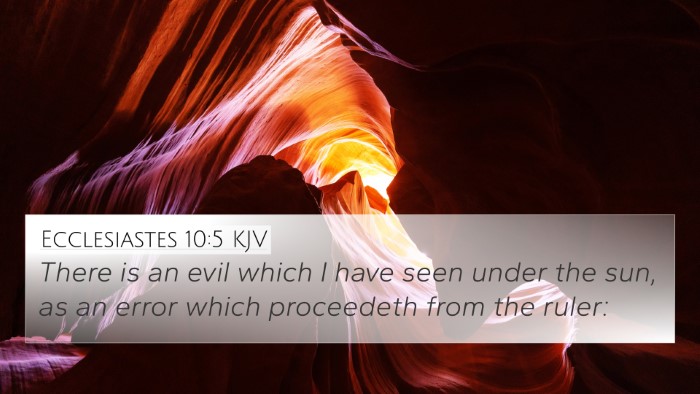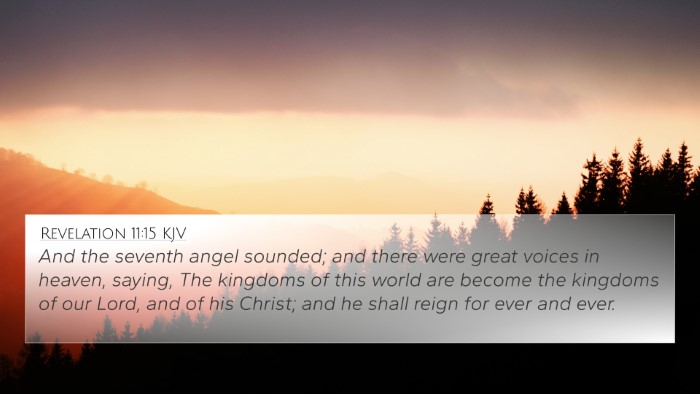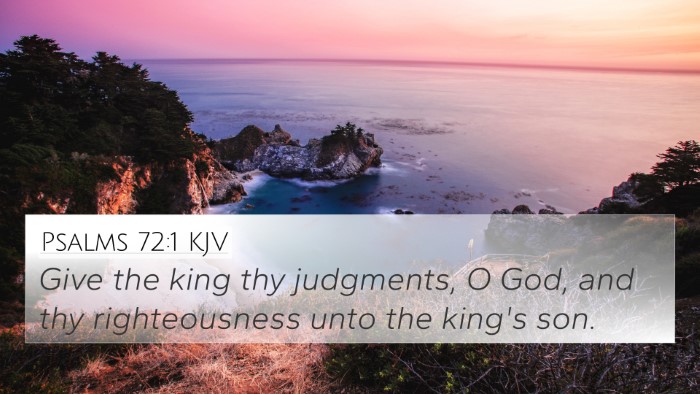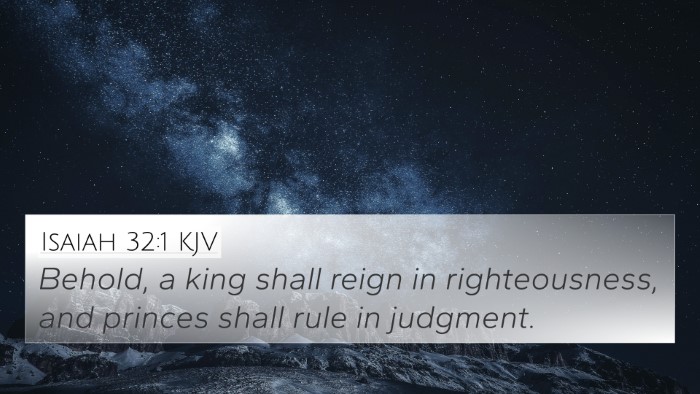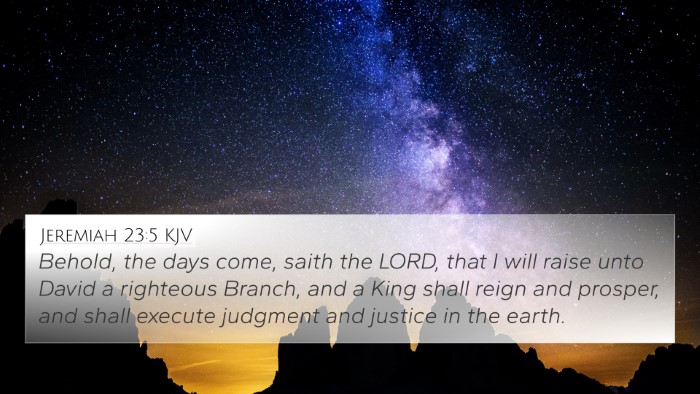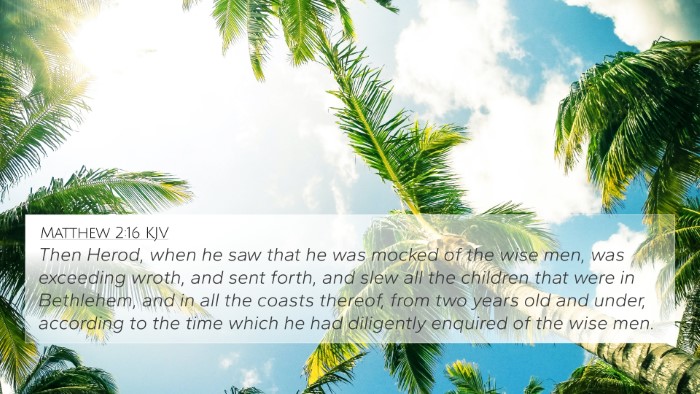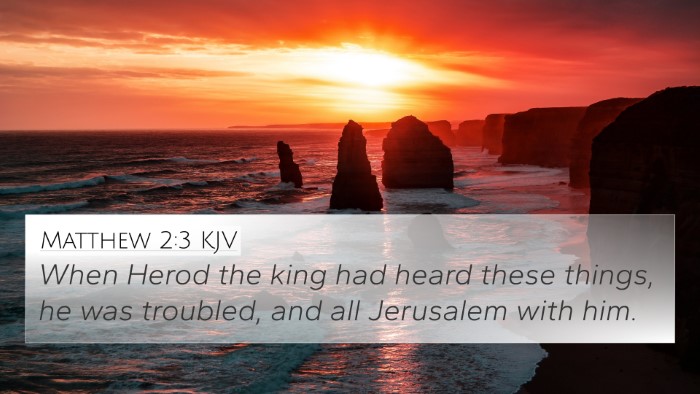Understanding Proverbs 29:2
The verse Proverbs 29:2 states:
"When the righteous are in authority, the people rejoice: but when the wicked beareth rule, the people mourn." (KJV)
Meaning and Interpretation
This verse encapsulates a profound principle about leadership and its impact on society, a theme that resonates throughout Scripture. It highlights the stark contrast between the governance of the righteous and the wicked, focusing on the results of their rule.
Insights from Commentaries
Drawing from the insights of public domain commentaries:
- Matthew Henry: He emphasizes that righteousness is key to good governance. When leaders prioritize justice and moral integrity, the populace feels secure and celebrates. Conversely, when wickedness prevails in leadership, it leads to societal sorrow and despair.
- Albert Barnes: Barnes notes the optimism associated with righteous leaders. He reflects that just governance leads to peace and happiness, evidencing human nature's desire for justice and integrity in leadership. The rule of the wicked, on the other hand, brings suffering and mourning among the people.
- Adam Clarke: Clarke mentions the direct relationship between the moral character of leaders and public wellbeing. He underscores that a righteous ruler creates an environment conducive to peace and joy, while a wicked ruler fosters discontent and sorrow.
Bible Verse Cross-References
This verse can be compared and contrasted with several other Scriptures that echo its themes of righteousness, authority, and the collective state of society. Here are some cross-references:
- Proverbs 16:12: "It is an abomination to kings to commit wickedness: for the throne is established by righteousness."
- 1 Timothy 2:1-2: "I exhort therefore, that, first of all, supplications, prayers, intercessions, and giving of thanks, be made for all men; for kings, and for all that are in authority; that we may lead a quiet and peaceable life in all godliness and honesty."
- Romans 13:4: "For he is the minister of God to thee for good. But if thou do that which is evil, be afraid; for he beareth not the sword in vain: for he is the minister of God, a revenger to execute wrath upon him that doeth evil."
- Psalms 4:2: "O ye sons of men, how long will ye turn my glory into shame? how long will ye love vanity, and seek after leasing? Selah."
- Psalms 82:3-4: "Defend the poor and fatherless: do justice to the afflicted and needy. Deliver the poor and needy: rid them out of the hand of the wicked."
- Isaiah 32:1: "Behold, a king shall reign in righteousness, and princes shall rule in judgment."
- Micha 3:11: "The heads thereof judge for reward, and the priests thereof teach for hire, and the prophets thereof divine for money: yet will they lean upon the LORD, and say, Is not the LORD among us? none evil can come upon us."
Thematic Bible Verse Connections
Proverbs 29:2 ties in with various themes across the Bible, including:
- The role of leaders in society.
- The moral responsibility of those in authority.
- The consequences of righteous leadership versus wicked leadership.
- God's justice manifested through governance.
Insights from Cross-Referencing
By employing tools for Bible cross-referencing, we can see parallels in different parts of the Scriptures, enriching our understanding of how biblical texts are interconnected. For example, the themes of righteous leadership found in Proverbs are echoed in the New Testament with directives on governmental authority and justice.
Conclusion
Proverbs 29:2 serves as a poignant reminder of the importance of righteousness in leadership. As we explore the connections between Bible verses, we gain a deeper understanding of the moral framework within which our leaders operate and the inevitable impacts of their rule on society. Therefore, engaging in comparative Bible verse analysis enables us to grasp the fuller biblical narrative regarding authority and governance.
Tools for Bible Cross-Referencing
To further investigate these themes and their interconnections, consider using:
- Bible concordances for thematic studies.
- Cross-reference Bible study guides for structured analysis.
- Resources that provide comprehensive lists of related verses.
Understanding the Bible through scriptural cross-referencing not only illuminates individual verses but also reveals a cohesive picture of God's governance model for humanity.
